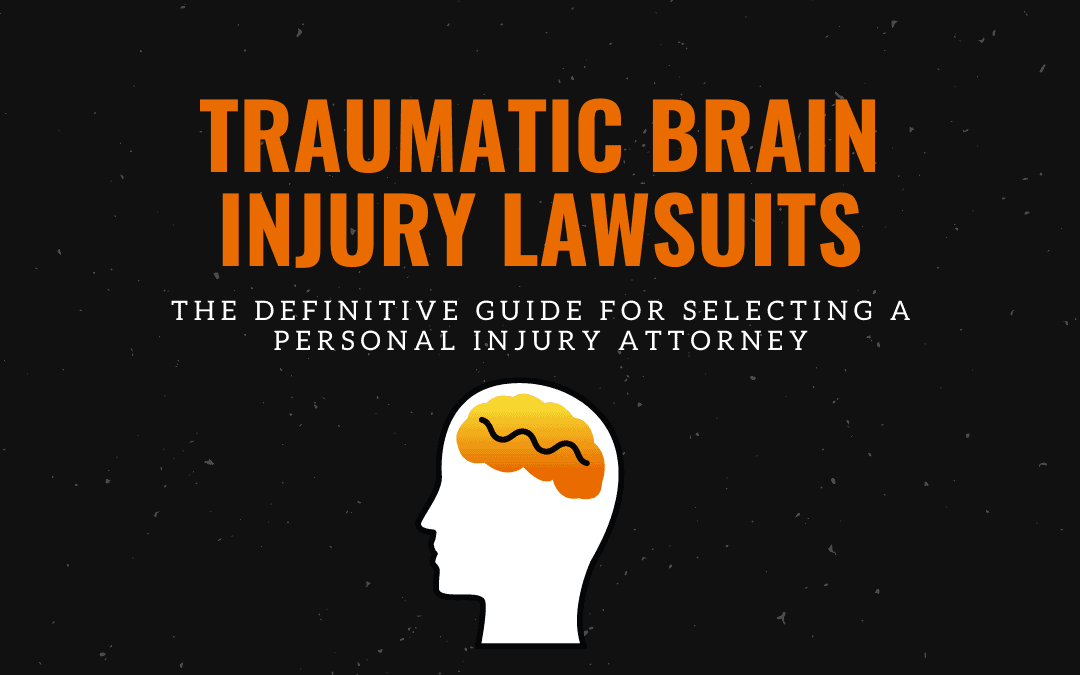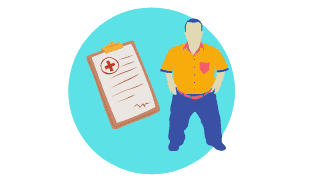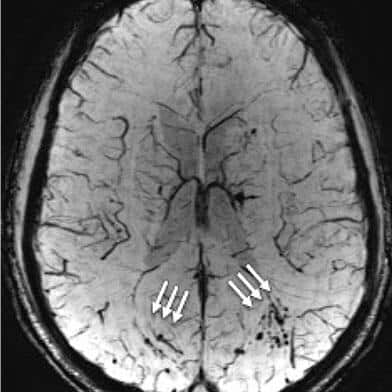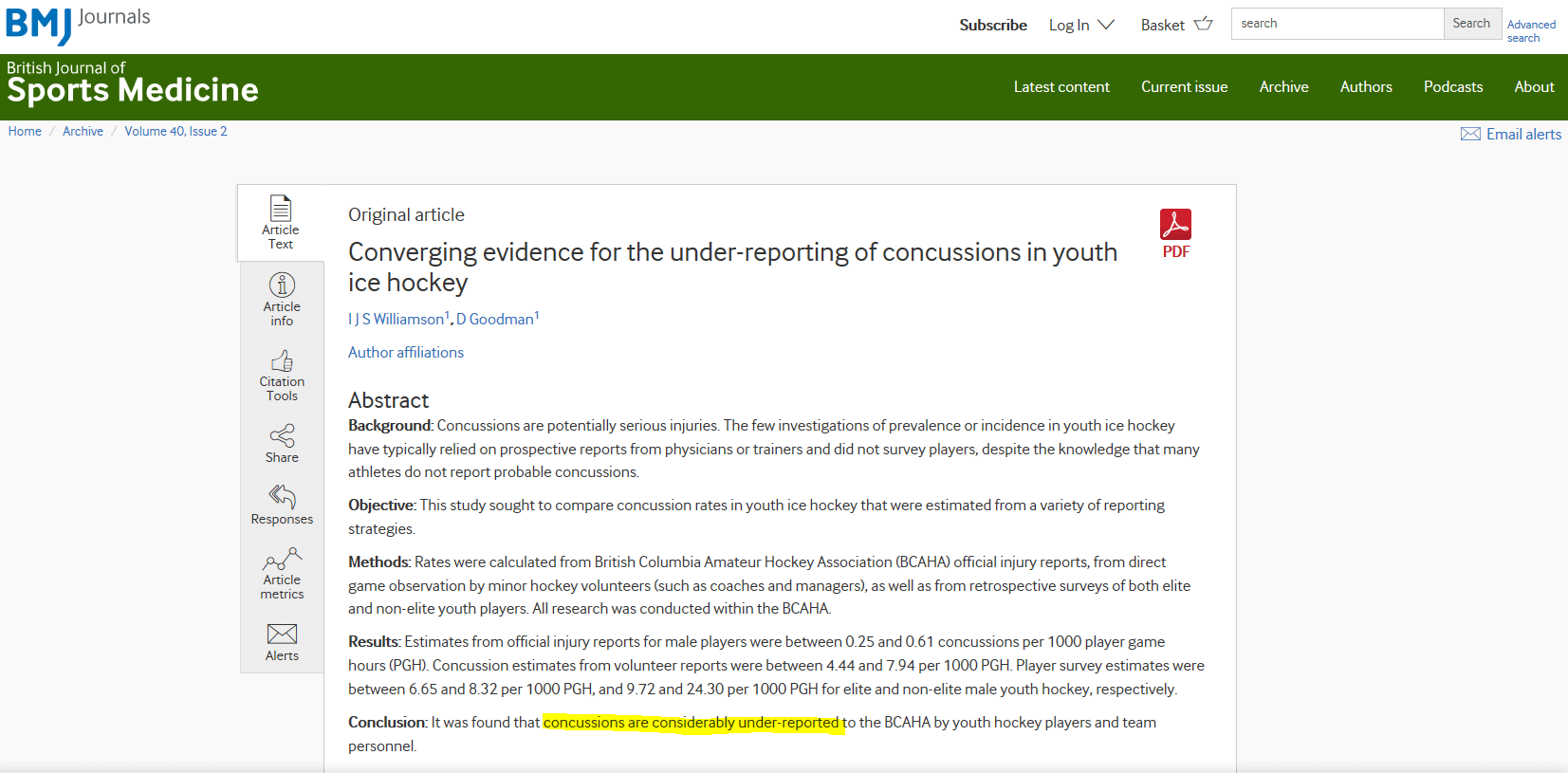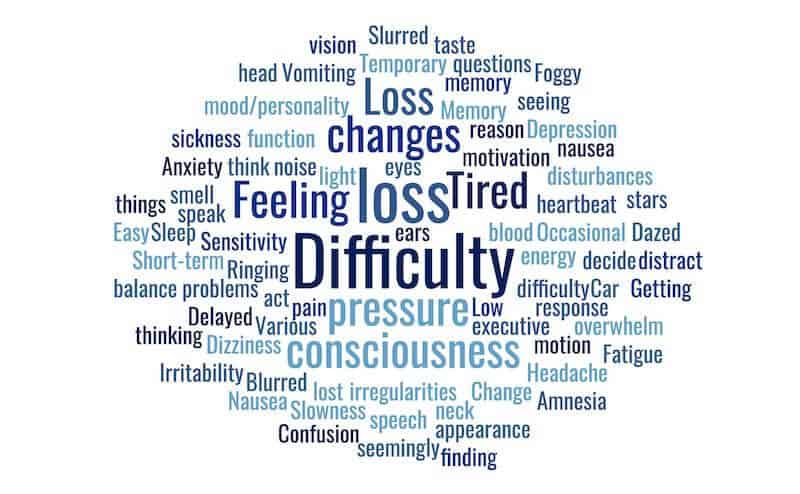The Definitive Guide To Choosing A Brain Injury Lawyer.
Know what to look for, what to ask, and what to expect from a traumatic brain injury lawyer.
By the end of this guide, not only will you learn more about selecting the right brain injury lawyer, but you will also learn the basics of traumatic brain injuries, the effects of traumatic brain injuries, the value of your traumatic brain injury case, and how to achieve the best result for your traumatic brain injury case.
We hope this helps!
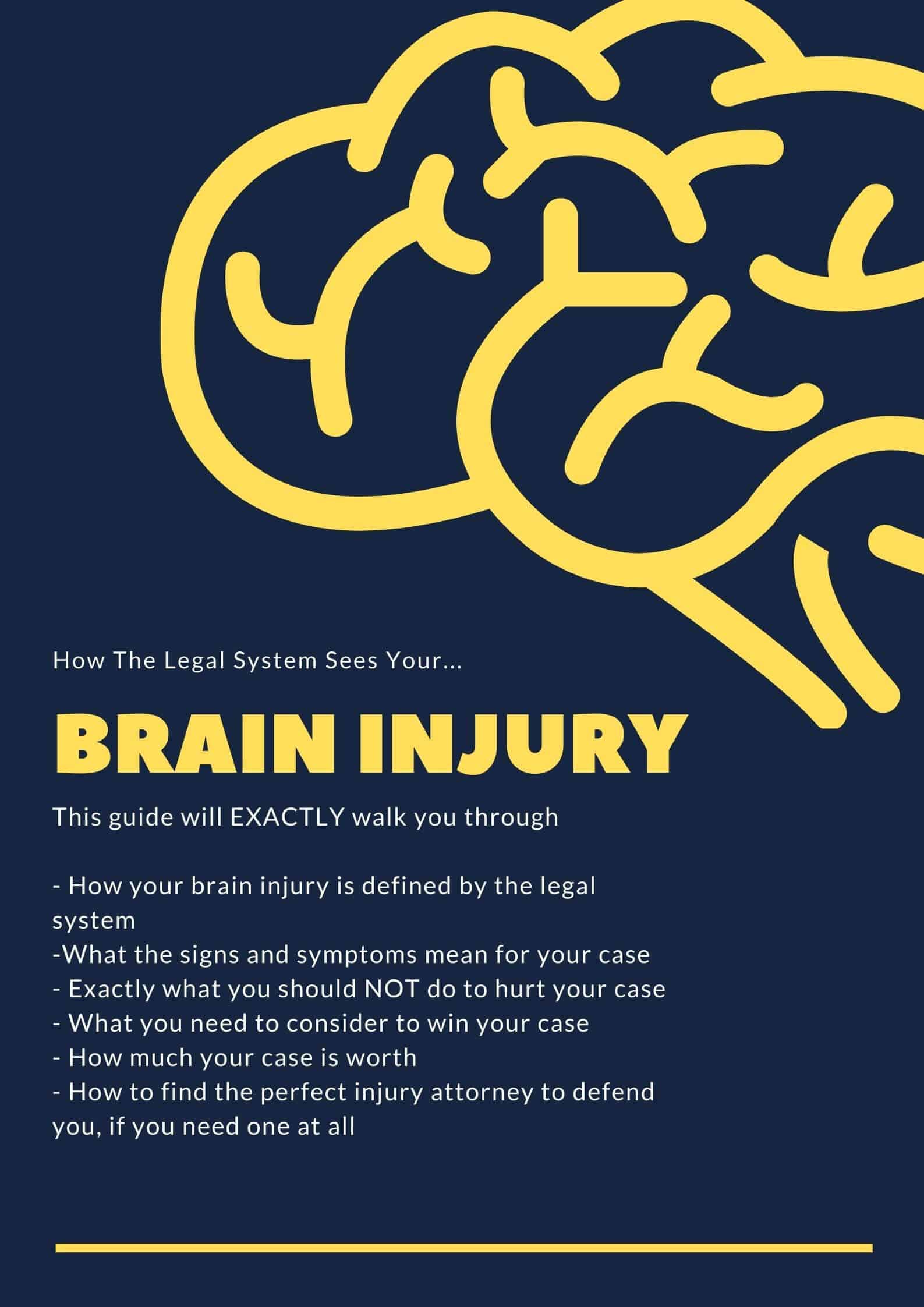
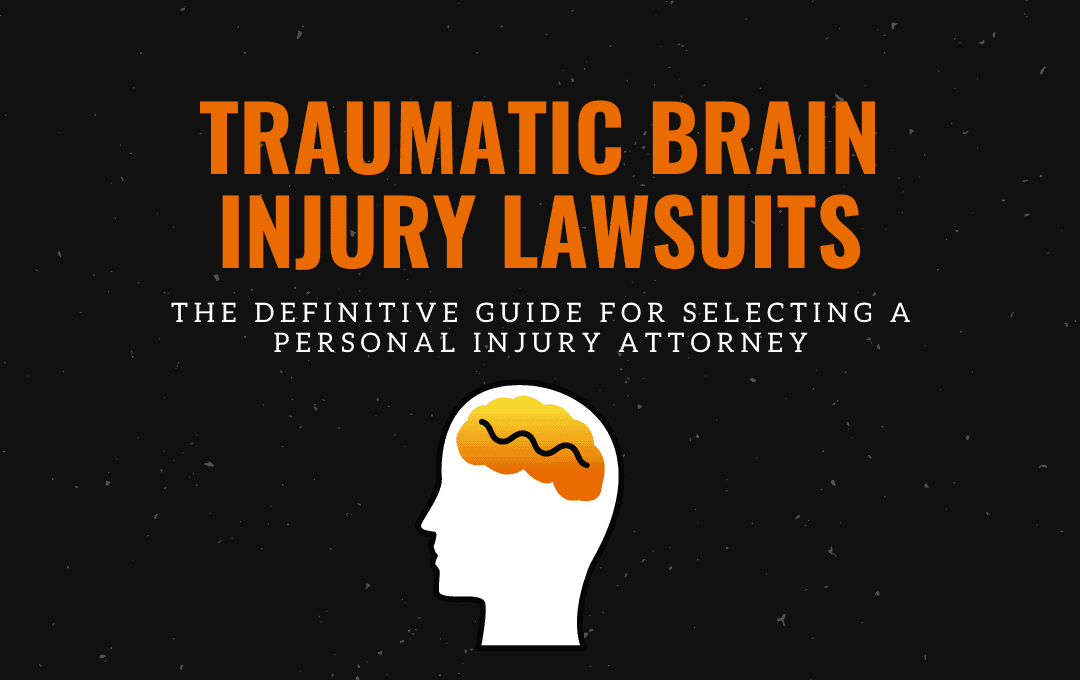
Contents

Chapter 1

Chapter 4

Chapter 5

Chapter 3
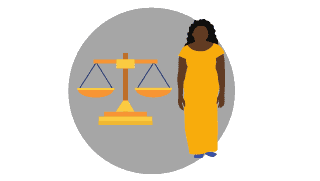
Chapter 6
Indeed, our brains are amazing and absolutely unique.
Not surprisingly, given the wonder and complexity of our brains, when you sustain a traumatic brain injury things can get complicated.
Let’s dig in and learn the basics about traumatic brain injuries.
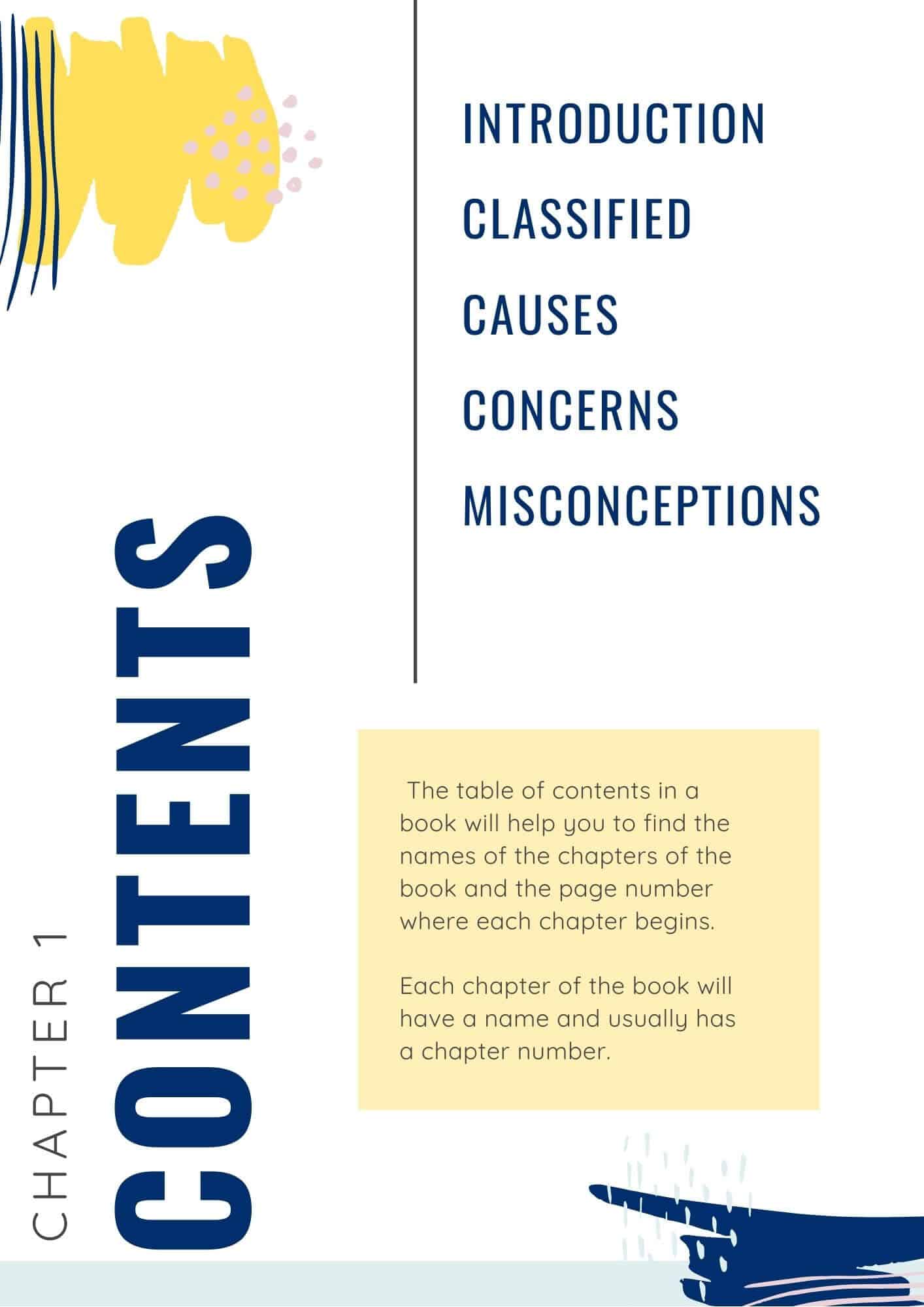
Traumatic Brain Injury Basics
How to start to understand your brain injury through the eyes of a lawyer…
What are the common types of brain injury?
- Concussion – a more minor injury often seen in shaking or whiplash injuries in sports or motor vehicle crashes. Difficult to see on MRI or CT. Worse if more are suffered before the prior concussion heals (second impact syndrome). A diffuse axonal injury is a more severe form of brain injury that happens with a similar injury mechanism. The difference is the brainstem is also injured as the movement causes problems with the brain attached to the spinal cord, and can be life-threatening.
- Brain Contusion – a bruise of the brain tissue. There might be leakage of blood vessels or small bleeds that can cause pressure injuries. These are more common with a blow to the head, like hitting a windshield in an automobile accident, hitting the floor on a fall, or an object falling and causing head trauma.
- Penetrating Brain Injuries – something pierces through the skull and into the brain matter or causes skull fragments to make contact with the brain. Slip and falls causing a cracked cranium, gunshot to the head, or a crush injury under extreme pressure.
- Anoxic Brain Injuries – not enough oxygen is reaching the brain. Permanent damage only takes minutes. This can happen after a blood clot, stroke, suffocation, choking, poisoning, or drowning. Hypoxic brain injury is similar, except some oxygen is getting to the brain.
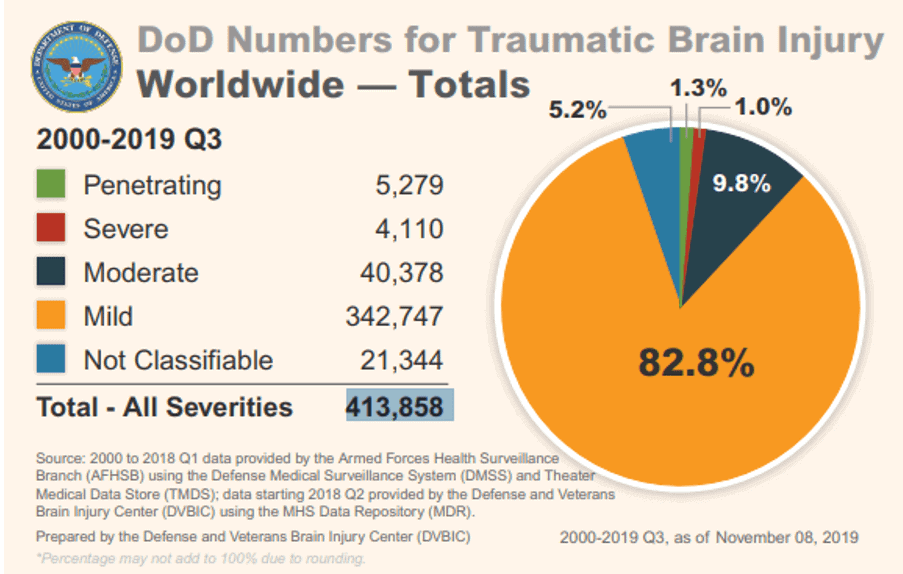
Is a concussion a traumatic brain injury?
Yes, a concussion is a more common, mild form of brain injury. Concussion symptoms range from mild to moderate. One thing to remember about concussions is that they are additive. Just think of a boxer or football player taking repeated blows to the head.
“Put me back in coach” is a relatively new viewpoint on sports-related head injuries at all ages. We can see the same thing in car accident injuries or repeated anoxic brain injuries.
There can be long-term deficits as all the blows add up over time. It doesn’t have to be years of injury, though. A couple of concussions, especially if the timing of them are close together, can cause severe problems.
How are concussions classified?
What is a Level 1 concussion?
This is a low grade or mild concussion. You might have a headache, trouble focusing, nausea, and/or dizziness. You wouldn’t have lost consciousness here. Your doctor might tell you to return to work shortly after the symptoms have passed.
What is a Level 2 concussion?
This is a moderate level of concussion. You would have sustained at least a minute but less than five minutes of unconsciousness. You need to seek medical treatment right away. You might feel all of the same symptoms in level 1 with the possible addition of tinnitus, irritability, and potential amnesia.
What is a Level 3 concussion?
This is the most severe, high-grade concussion and requires immediate medical attention. Here you might see some mental deterioration, like difficulty with speech, concentration, memory, awareness, vomiting, and seeing stars.
What are some common causes of traumatic brain injury?
Traumatic brain injuries can be caused be caused by a number of things, including:
- Falls (the incident of brain injury from falls is almost half of all causes)
- Struck by an object
- Auto accidents
- Oxygen deprivation, asphyxiation
- Sports accidents
- Construction accidents
- Workplace accidents
- Defective products
Here’s a helpful chart to show the breakdown:
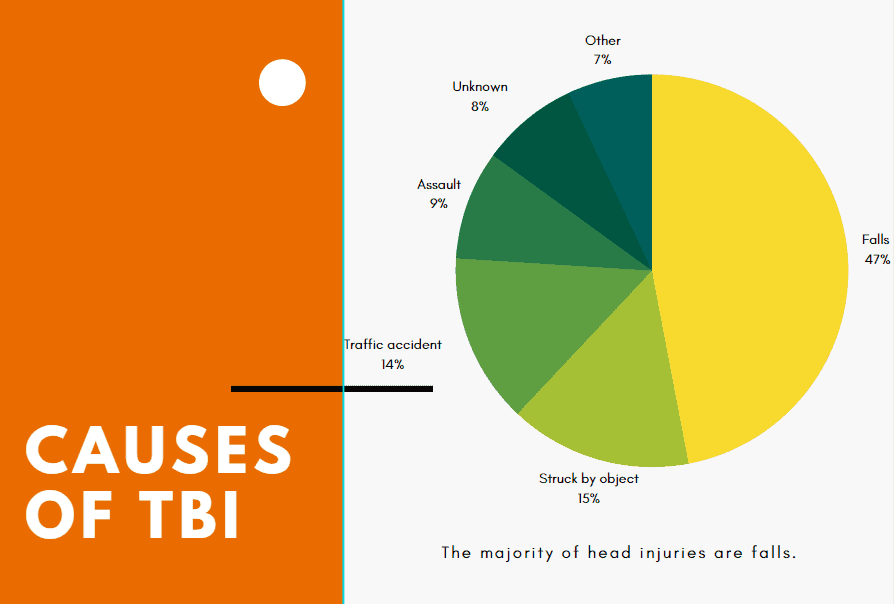
What happens if a brain is damaged?
Your brain is (really) soft tissue. It’s made up largely of fat and can easily be squished down with just slight pressure. Also, your brain isn’t attached to your skull but rather suspended in cerebrospinal fluid, just floating inside the hard casing of your skull. This is a great protective design for some injuries but not all.
For a direct blow, the skull works great to protect your brain. It’s your brain’s shield. But there are at least two times when the skull’s barrier fails to protect your brain.
1) A direct, violent blow to the head. You might see this in motorcycle accidents, slip and fall injuries, sports injuries, or violent attacks with blunt force trauma causing direct tissue damage. The traumatic brain injury might be caused by the force of impact, damage to the vasculature supplying blood to the brain, or problems due to brain swelling.
2) Rapid acceleration or deceleration injury. Since your brain is this soft, fatty organ encased in a rock-solid skull, violent sloshing around of the brain inside your skull can cause direct injury to your brain, even if nothing on the outside ever made contact with your head. This is commonly seen in car accidents and boating accidents, where the head is suddenly thrown forwards, backward, or to the side (aka coup and countrecoup injury). The brain is floating in the CSF fluid and sloshes around violently. Head-on auto accidents might see injuries to the frontal lobe and occipital lobe (front and back of the brain). A car crash from the side might see injuries to the parietal lobe or temporal lobes (side of the brain).
The brain is also susceptible to damage from loss of air or blood flow. Anoxic and hypoxic brain injury is associated with strokes, suffocation, birth trauma, chemicals, or poisons.
Sometimes, you can instantly see the effects of the brain-injured. Other times, there is a delayed onset that can come and go in severity. Your brain is part of your central nervous system. There is no regeneration of neurons in your brain. So once it is gone, it is gone. The healing process that you see is due to the recovery of brain tissue that shut down as a protective measure to slow down metabolism, or some measure adaptiveness of the brain where other areas compensate for the injury.
What are some common misconceptions around TBI?
There are misconceptions surrounding TBI treatment and symptoms.
First, just because there is no injury demonstrated on a MRI does not mean there is no TBI sustained by the injured person. This is a shortcoming of the MRI, not proof of no injury. An MRI is not able to pick up damage at a microscopic level.
Second, you do not need to lose consciousness in order for a TBI to occur. While this does commonly happen as your brain’s own defense mechanism, it is not a requirement.
Third, you do not need a direct blow to the head in order to sustain a TBI. We see this often in acceleration/deceleration injuries, like in a whiplash injury sustained in an auto accident where there is no reported head trauma. The brain sloshes around in your cranium and smashes into the skull. As a matter of fact, this type of injury can cause injury to both the front and back of the brain as the accident victim is thrust forward and backward.
Fourth, recovery from a concussion or a more severe TBI will not necessarily recover quickly, or at all. Claims adjusters will often try to shorten the timeline of recovery, as that reduces the overall amount of settlement to cover the cost of medical bills. Sometimes the signs of recovery still-in-progress are masked by the person taking it easy. Effects from the assault might not show themselves under medical care, but rather during times of high stress, exercise, flying on a plane, or mental exertion past a certain capacity level.
Do concussions leave scar tissue?
Is a concussion a serious injury?
Yes. This is an injury to the brain that can have immediate and long-term effects. Seek medical treatment first and then speak with a personal injury attorney experienced with traumatic brain injury lawsuits.
How long does a traumatic brain injury last and will it get better?
The symptoms of a mild brain injury (concussion) typically improve within hours to days. It is typically recommended that someone with a concussion not engage in any activity that could put them at risk for another concussion. This is how a mild TBI turns into a more severe TBI. Symptoms generally resolve after a couple of months, but your team of medical professionals will have a more catered treatment program and recovery estimates.
Moderate to severe TBI may have long-lasting and possibly permanent medical, physical, and cognitive issues. You may see these brain injuries after an auto accident, anoxic brain injury (loss of oxygen or blood), slip and fall (especially from greater heights, like off a ladder), or hit with an object (like at a construction worksite). The injured person typically requires some emergency help, specialized medical treatment (physical, speech, neuropsychological, and occupational therapy), and ongoing care for brain damage.
Make no mistake, a TBI is considered a catastrophic injury. So much of a person’s life can be turned upside down. Accident victims may find it difficult to return to their pre-injury state. Others will find gradual improvement months to years down the line or find ways to adapt and cope with their brain injuries.
Do traumatic brain injuries shorten your life?
According to the CDC, despite initial hospitalization and inpatient rehabilitation services, about 50% of people with TBI will experience a further decline in their daily lives or die within 5 years of their injury. In addition to the initial injury after motor vehicle crashes or oxygen-deprived injuries, those with head trauma are more likely to face ongoing chronic health problems, including seizures, accidental drug poisoning, infections, and pneumonia.
It’s important to understand what are potential long term consequences of a traumatic brain injury and where that leaves you going into the rest of your life.
Here’s what you’ll need to know about potential effects after suffering a brain injury.
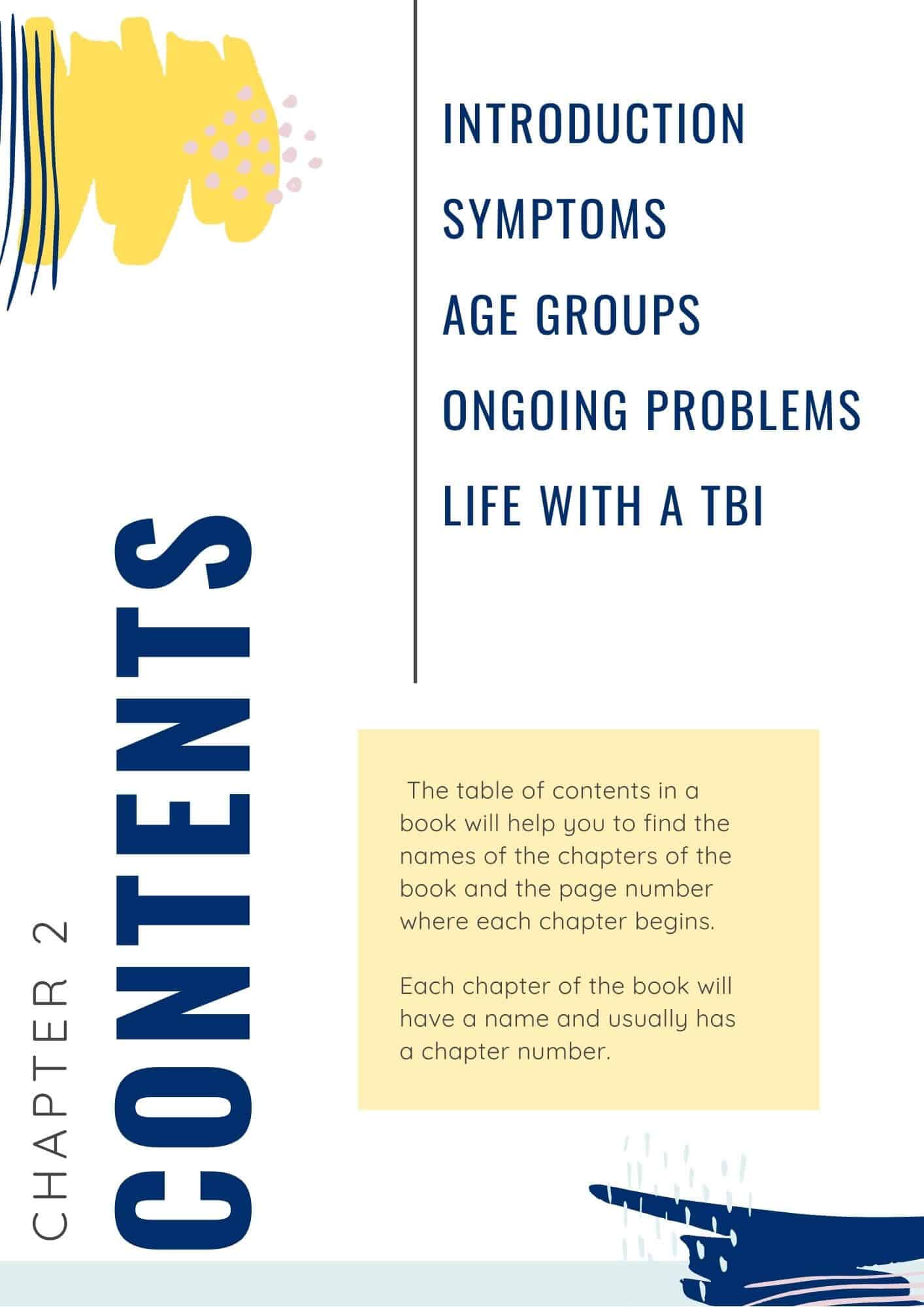
The Effects Of A Traumatic Brain Injury
For mild traumatic brain injuries, effects can include decreased attention, confusion, irritability, mood swings, headaches, and fatigue.
For moderate traumatic brain injuries, effects can include increased confusion, decreased interction skills, irritability, and loss of stamina.
For severe traumatic brain injuries, effects can include difficulty speaking, chronic pain, and partial or total loss of vision.
Generally, when children suffer a traumatic brain injury their symptoms are usually the same as adults’ symptoms. However, because children are unable to express their thoughts, feelings, and symptoms as well as adults, it can be harder to determine the extent of the traumatic brain injury. Additionally, children do not recover quicker than adults after suffering a traumatic brain injury. Symptoms for children who have suffered a traumatic brain injury include, but are not limited to: listlessness, changes in the way they eat or play, changes in the way they sleep, changes in how they do at school, no interest in their toys, and loss of new skills.
Critically, if you suspect you or a loved one might have suffered a traumatic brain injury, seek medical care as soon as you possibly can. Generally, the emergency medical care will make sure that the traumatic brain injury patient has enough oxygen, adequate blood supply, and take other steps to prevent further injury to the head.
What are the common symptoms of traumatic brain injury?
Some people start to notice symptoms right away, while others may not see signs of TBI for months. The common symptoms for this type of brain injury include:
- Persistent headache, severe headache, unexplained headaches
- Mental fog, confusion, behavior changes, mood swings
- Memory loss, poor attention, poor thought processing
- Loss of consciousness, lightheadedness
- Difficulty awakening from sleep, semi-coma, coma
- Double vision, loss of vision
- Vertigo, dizziness, loss of balance
- Nausea, vomiting
- Slurred speech
- Numbness or tingling in your extremities (arms and legs)
- Dilated pupils (the large, dark center of your eye), sensitivity to light
- Paralysis
- Bad taste or metallic taste in your mouth
- Ringing in ears, tinnitus, sensitivity to sound
- Losses of the sense of smell or taste
- Fatigue, tiredness
- Convulsions, seizure activity
- Loss of bowel or bladder control
If you had a head injury, or a rapid acceleration/deceleration automobile accident, please seek medical attention immediately from a medical professional.
Are the symptoms in a child the same as an adult after a brain injury?
The symptoms expressed in a child after a traumatic brain injury are similar to adults. It may, however, be more difficult to fully access the extent of the injury at the moment due to difficulty in expressing what they are feeling, as well as mental, emotional, and physical milestones not yet met by the developing child.
While it was previously thought that children bounce back better than adults, that is no longer the current understanding of TBI recovery in children. Children can have delayed development in adaptive behavior and cognitive development.
A child’s symptoms after a TBI may be similar to those of an adult. However, contrary to what was previously believed, children do not generally fare better than adults after suffering a brain injury. In fact, a brain injury in a child may be even more devastating as a child’s brain is still developing. Additionally, very young children cannot accurately describe what they’re feeling, which leads to brain injuries that may go undetected for a while or cognitive difficulties that aren’t apparent until the child is older.
Those liable to cover those charges might look to downgrade, or even outright fight to disprove, those claims.
There are several ways you might help them accomplish that goal if you’re not careful.
This chapter covers potential landmines you’ll want to avoid so you don’t hurt your case before it even gets started.
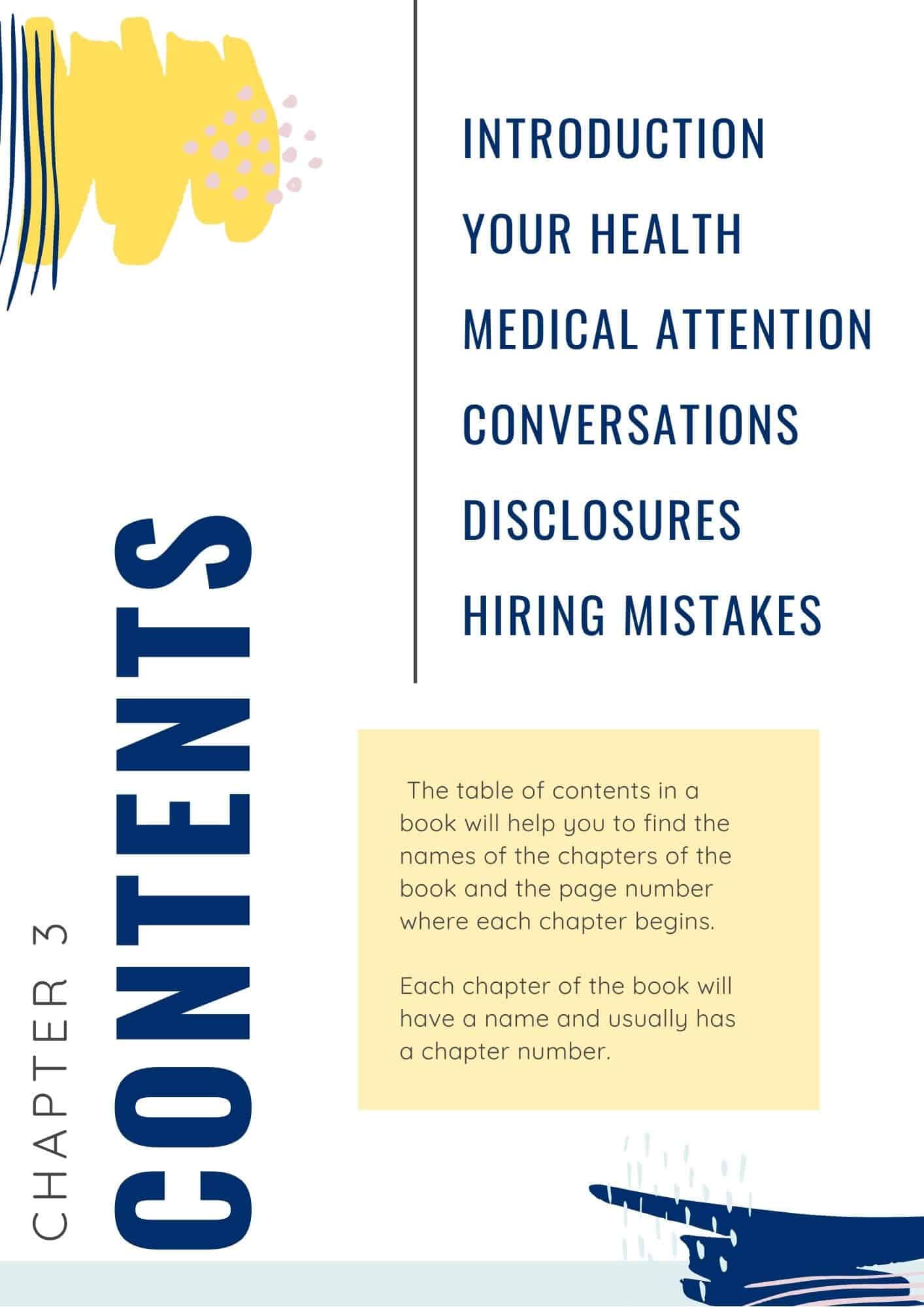
Be Careful Of These Pitfalls!
Not Being Proactive About Your Health
After an accident, it is critical to seek medical care right away. This is especially true for traumatic brain injuries, which may not show up right away. Even if you feel “ok,” seek medical care and treatment. Additionally, if you are in a car accident, you have to seek medical treatment within 14 days in order to receive your personal injury protection (“PIP”) benefits. If you do not receive medical treatment within 14 days, you will waive these valuable benefits.
Handling Your Traumatic Brain Injury Case On Your Own
It may be tempting to handle your traumatic brain injury case on your own, especially if the negligent party’s insurance company contacted you with a settlement offer. But don’t make this mistake – not only will a brain injury lawyer help you determine what your case is worth, but studies have shown that personal injury lawyers get their clients 3 times more money than when clients represent themselves. Moreover, a brain injury lawyer will answer all of your questions and provide emotional support following your accident. Indeed, clients find it comforting knowing they have an advocate actively defending and protecting their interests.
Waiting Too Long To Contact A Brain Injury Lawyer
Some people may believe they need to get better before they contact a brain injury lawyer. This is a mistake. Evidence can be lost if it is not identified and preserved right away. Additionally, Florida has statutes of limitations that apply to personal injury claims. You don’t want to wait bring a personal injury claim only to find out it is now time barred by the statute of limitations.
Speaking With The Negligent Party’s Insurance Company
If you get a telephone call from the negligent party’s insurance company, it may seem harmless to speak with the insurance company adjuster or representative. But it is not. In addition to being caught offguard, you may innocently make a statment which can potentially hurt your case. Moreover, you are under no legal obligation to speak with the negligent driver’s insurance company. There is no rule or law requiring you to speak with the negligent driver’s insurance company. If you happen to get a call from an insurance company representative, politely tell him or her to speak with your lawyer (if you have one) and hang up.
Missing Doctor’s Appointments
Make sure to keep all of your scheduled doctor’s appointments. When insurance companies review your medical records, they often look for gaps in medical care and treatment. The reason they do this is to argue that you were not injured, or at least seriously injured, because you regularly missed your doctor’s appointments. To avoid this argument, make sure to keep all of your doctor’s appointments, and reschedule any missed appointments as quickly as you can.
Failing To Disclose Prior Treatment
When discussing your medical history, you must disclose all prior injuries, regardless of whether they happened many years ago or whether you fully recovered. Depending on the facts and circumstances of your case, your prior injuries may be relevant. Don’t decide what’s relevant and what’s not; just disclose everything.
Failing To Disclose Prior Accidents And Personal Injury Claims
When disclosing your personal injury claims history, it is critical to disclose all prior personal injury claims. This includes claims where you received minor injuries, or even when you sought treatment to confirm you were not injured. As you probably expected, if you fail to disclose a prior accident or injury the insurance company will argue that you were hiding your prior claims in an effort to increase the value of your current claim. What is more, the insurance company may be able to make this argument in front of the jury in an effort to make you look like a liar. You want to avoid this at all costs. Remember: disclose all prior accidents and personal injury claims.
Accepting The First Offer The Insurance Company Makes
It is important to remember that the first settlement offer the insurance company makes will usually not be the last. Carefully evaluate each settlement offer that is made, and see whether it fairly compensates for all of your potential damages.
Hiring A Lawyer Who Is Not Experienced In Personal Injury Law
While you may want to hire a lawyer who is a family friend or neighbor, this might be a mistake if he or she does not have experience in personal injury law. Make sure your attorney regularly and consistently handles personal injury cases.
The part that is often most scary (because it is unfamiliar) is navigating the legal process. And that’s understandable, as it takes lawyers years of school to learn it.
But that’s just setting the table. To win your brain injury lawsuit, you’ll need some additional skills of negotiation, strategic planning, and legal experience. Plus, there are steps you can take to help maximize your recovery.
Let’s take a closer look.
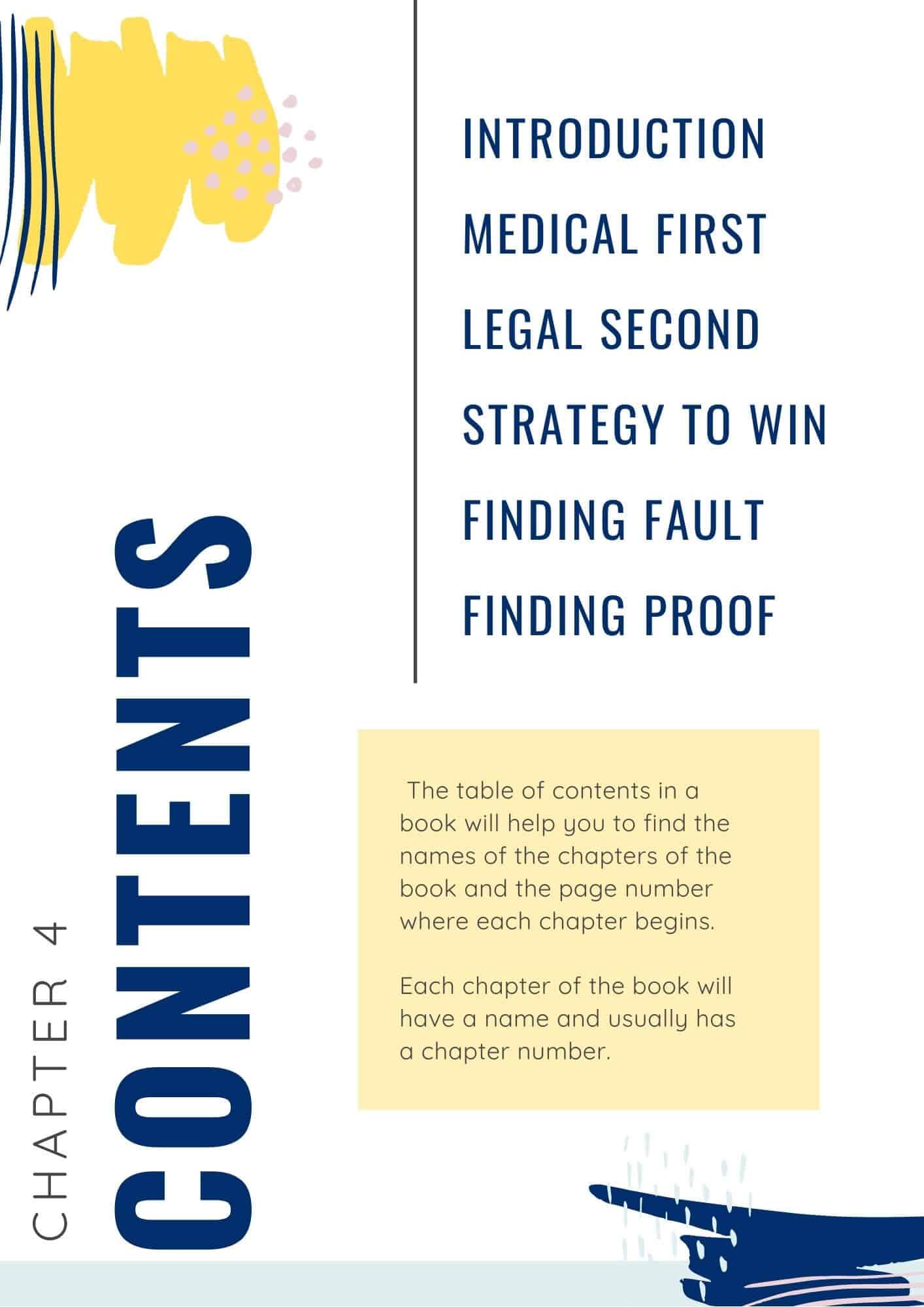
Steps To Take To Maximize Your
Financial Recovery
First: Always Tell The Truth
Thoughout your traumatic brain injury cse, you will be asked questions – often under oath – about the accident, your injuries, your work history, your medical history, your recovery, your accident and personal injury claims history, and other important facts and issues. Do not puff, exaggerate, or lie about any of these facts and issues. The consequences of doing so can be severe, and will significantly hurt your chances of getting a fair and reasonable recovery.
Second: Get The Medical Care And Attention You Need
Do not wait to get better, or see if your injuries will go away without getting medical treatment.Instead, get medical care immediately. This will show the accident impacted your health, and ultimately help you get a better result.
Third, Contact A Traumatic Brain Injury Lawyer As Soon As You Are Able
A traumatic brain injury lawyer will begin working on your case right away and start protecting your rights. This includes gathering evidence about the accident, determining fault and liability, interviewing witnesses, collecting medical records, and conducting legal research.
Fourth, Keep Your Doctor’s Appointments And Follow Your Doctor’s Recommendations
This shows, among other things, you are taking your health and recovery seriously. Plus, it helps increase your chances of getting a fair recovery.
Fifth, Preserve And Gather All Evidence Regarding Your Traumatic Brain Injury Claim
This includes taking photographs of your injuries, taking photographs of the damaged vehicles (if you were in a car accident), the accident scene, and the names and contact information of any witnesses. If you have this documentation and information available, it will help your chances of obtaining a fair recovery.
Sixth, Choose The Right Lawyer For Your Traumatic Brain Injury Case
With the right lawyer, you will help your chances of obtaining a fair financial recovery.
How Do You Prove A Concussion Or Traumatic Brain Injury?
An MRI can show some types of brain injury, but not all. The absence of proof does not equal the absence of injury.
Other physical exam findings, mental and behavioral batteries performed by your healthcare providers can also help determine traumatic brain injury. These might include:
- Glasgow Coma Scale (GCS)
- Medical measurements to grade the level of TBI
- Speech and Language Tests
- Cognition and Neuropsychological Tests
- Other Imaging Tests, like CT
- Tests for Assessing TBI in Military Settings (transcranial doppler)
Assessments from medical professionals, like neurologists, to identify common types of deficits will help support and document the TBI.
To understand the potential value of your case, you’ll need to know the right questions to ask.
To know what your brain injury legal case is worth, read below to begin taking inventory.
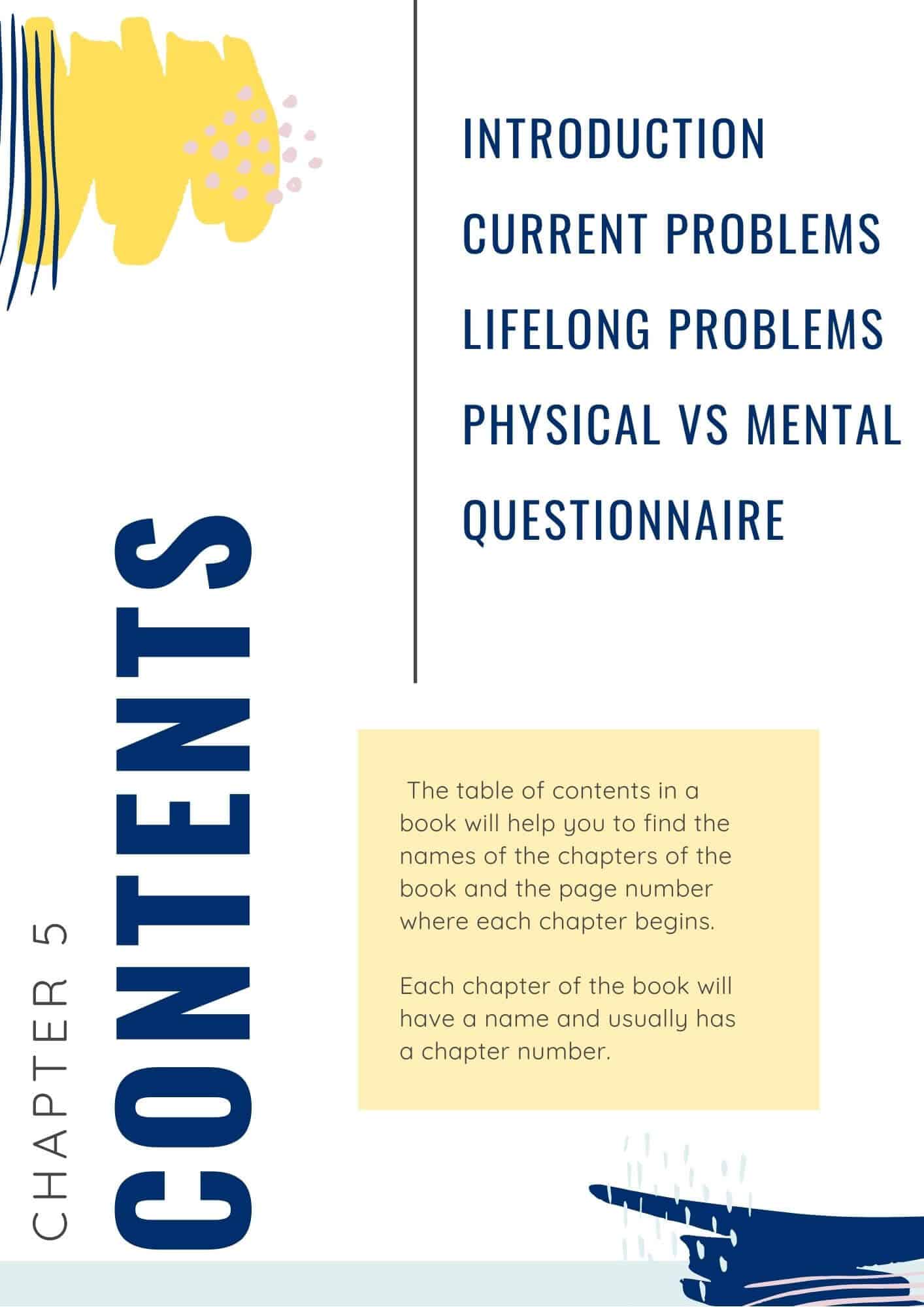
What Factors Are Important To Case Value?
Seeing as your brain is the command center of your body, the range of the severity and range of symptoms can be quite wide. Depending on the severity of the brain injury, cases can be worth many millions of dollars. This is especially true if the catastrophic injuries are sustained by a child. Additional injuries are not uncommon, like broken bones, spinal cord injury, and other soft tissue injuries. Preexisting conditions might also affect the severity of the injuries. The range of claims filed and paid out vary greatly, so the only true answer is we won’t know until we go through your case. Any numbers stated are to be used as an example and not something to factor into your own case.
Here are the most important factors to determine the value of your brain injury case.
First: The Extent of Your Injuries
What is the extent of your injuries? Is your traumatic brain injury mild, moderate, or severe? Will you fully recover from your injuries, or will you suffer from the effects of your traumatic brain injury for the rest of your life? If your traumatic brain injury will affect you for the rest of your life, then the value of your brain injury case is higher.
Second: What Is The Cost Of Your Medical Bills?
What is the total cost of your medical bills? Generally, the higher your medical bills the more your brain injury case is worth. This is because at trial the jury will consider the total cost of our medical bills and expenses. This includes not only your past medical bills, but also those medical expenses you will incur in the future. For example, in many personal injury cases, your potential settlement might include the costs of future surgeries, should you need them. If you do, it is important to include such damages in your settlement.
Third: What Are The Facts Surrounding The Accident?
What are the facts surrounding the accident? Was the other party clearly at fault? Were you to blame, even partially, for the accident? If so, this may affect the value of your case. Importantly, though, do not be discouraged if you think you might be partially to blame for the accident. This happens often. Additionally, let your personal injury lawyer investigate liability. Personal injury lawyers have substantial experience investigating and determining liability for an accident. So even though you think you may be partially or fully to blame for causing the accident, you may not be at fault.
Fourth: Did The Negligent Party Have Liability Insurance?
Did the negligent party have liability insurance? If so, how much insurance was the negligent party carrying – $10,000, $250,000, $1,000,000, etc.? As an example, many drivers in Florida do not have liability insurance. So even if the driver that hit you was clearly at fault, if he or she does have insurance the likelihood of obtaining a settlement or financial recovery is small. Further, are there are any other insurance policies which provide coverage for the negligent party? For example, did the negligent party have an excess or umbrella policy that provides coverage above the primary insurance policy? Also, if the negligent party was driving a car, was he or she driving for his or her employer? If so, the employer’s liability policy may come into play. So as you can see, the amount of potential insurance coverage will have a significant impact on the value of your traumatic brain injury case.
Fifth: How Has Your Brain Injury Impacted Your Life?
How has your brain injury case impacted your daily life? Are you still holding the same job? Are you still able to care for yourself and your family? Physically, can you do the same things as before the accident? The answers to these and other questions directly impact the value of your brain injury case. Generally speaking, the more your traumatic brain injury affected and disrupted your activities of daily living, the more your potential traumatic brain injury case is worth.
Sixth: Did The Accident Affect You Emotionally?
Did the accident affect you emotionally? If so, how did it affect you mentally and emotionally. This is known as your non-economic damages, or your pain and suffering damages. Of course, accidents affect people differently. While some people might be able to recover mentally and emotionally quickly, others may not. Additionally, there is no set value or amount for your pain and suffering damages. Florida’s jury instructions state there is no precise standard for these damages; instead, the damages have to be fair and just in light of the evidence.
Seventh: Your Impact On Your Case
You will have a direct impact on the value of your case. When you explain your story, such as in your deposition, are you credible and believable? Will the other side feel sympathy for you? As a former insurance defense lawyer, one of my jobs after taking an injured party’s deposition was to report on whether or not I believed the injured was a credible witness. Insurance companies want to know this information because a jury will ultimately decide whether you are credible or not. This impacts the settlement value of your case.
What is the average payout for concussions?
Are you wondering if there is an average brain injury settlement amount? Generally, there is no “average” settlement. Both traumatic brain injury and all levels of concussions have a range of payouts depending on a number of factors. A severe brain injury may be worth millions of dollars. Concussions that are less traumatic (but still a form of brain injury causing deficits and problems) will be worth far less (remember, this dollar amount ranges pretty wide).
Other Questions and Issues Which May Impact Case Value
Here are additional questions to consider when determining the value of your brain injury lawsuit. Some questions may apply to your case, while others may not. It simply depends on the facts and circumstances of your particular, unique case.
- What was the reason for the injury and how easy is it to establish the fault of the alleged negligent party?
- Was there a statement made where the defendant admitted fault?
- Are there any prior facts or circumstances, or background information, pertinent to the cause or outcome of the injury?
- Did anyone witness the injury?
- Did the police come and create a report?
- Were drugs, alcohol, or anything else that might impair someone’s judgment used or involved?
- Were pictures taken of the injury scene? Were photos taken of the injury?
- Was there any property damage and, if so, how severe? Like a car, truck, boat, bike, motorcycle, object, attacking weapon, structure, etc.
- Were there any notable environmental factors? Rain, flooding, snow, fog, heat, freezing, etc.
- Did the plaintiff have an opportunity to prevent the injury but didn’t? Or the defendant?
- Was there a pattern of negligence prior to the injury? Any reports, videos, photos, or written warnings?
- Were any laws broken?
- Were there any faulty or neglected products involved in the injury? Like bald tires, a car with a faulty part, construction not up to code, maintenance expirations, etc.
- Was there any proof of poor or impaired judgment, like texting while driving?
- Was there any immediate pain, signs, or symptoms after the head injury? Was the injured victim taken to the hospital or to be seen by a medical physician? If there was a delay in seeking medical care, why? What diagnosis and prognosis was given?
- What testing (x-rays, CT scans, MRI’s, etc.) was performed, and what were the results?
- After the initial medical visit, how long until you went to your next medical visit? Was it for another exam, test, or treatment?
- How well did you follow the medical advice given? Any treatments missed?
- What was the treatment recommendation? How long per session? How long to stick to it? How much are you doing now versus later?
- What grade was the head and brain injury given? Were there any other injuries, like broken bones, tissue damage, torn ligaments, eye injury?
- Were there any permanent disfigurement or scars?
- Did you follow any safety rules and laws, like walking in a pedestrian crossing area, wearing a seatbelt, not entering a restricted area?
- Is this a new injury, or was there some prior injury that could have caused additional problems? Can this be proved?
- What medical treatment is needed? Drugs? Surgery? Physical therapy? Speech therapy? Behavior therapy?
- Were you referred to a specialist for your injury? A neurosurgeon or neurologist?
- Were any pain and suffering treatments needed? Where any non-brain injury treatments needed?
- Have you healed from your injuries? If so, how long did your recovery take – days, months, years?
- If there is pain, what is your rating out of 10, how frequent, where on your body, does something make it worse or better, does it prevent you from doing anything?
- Is there a medical record stating you will have prolonged or permanent damage?
- Who wrote your prognosis: a medical doctor, doctor of osteopathy, or a doctor of chiropractic?
- What do the written medical records, reports, and bills say in addition to the diagnosis and prognosis?
- How much are the current and anticipated medical bills? Were they paid by you or the insurance company? Was it a direct payment, or towards a co-pay? What’s the balance still owed? Can it be written off or reduced?
- Was any medical or hospital lien filed? If so, for what amount?
- Were any LOPs (letters of protection) written?
- At the time of receiving care, were there personal injury protection benefits reported as an option?
- Were there other insurance benefits available, including uninsured/underinsured motorist coverage, workers compensation, Medicare, Medicaid, VA benefits, etc.?
- Were there any loss of wages? Do you anticipate ongoing problems with performing your work?
- Was a medical note requesting you stop working given? What was the duration stated?
- Have you tracked the loss of wages? How can you prove it?
- Besides salary or hourly wages, were any benefits lost (401K, insurances)?
- Were you given the option of light-duty?
- Was the injury the cause of your job loss? Can you prove you were terminated because of it?
- Were you able to get a new job? What’s the difference in pay? What did you do in between jobs for money?
- Is there an insurance company involved? Which one?
- What does the insurance coverage look like? What does it cover and how much?
- Is the injury due to a single person, or is there a company or organization at fault?
- Was the injured person a child? Who is the person that can represent them in court, as needed?
- Who has the stronger case, by considering both the events of the injury and the actions taken following the injury (which is why you need to speak to a personal injury attorney right away!)?
- Where will a lawsuit be filed?
- Who will be hearing your case? Who is representing the other side?
When you do, you will want to make sure you are getting the best lawyer to represent you in your traumatic brain injury case.
Just like you would not want a brain surgeon operating on a failing heart, you don’t want any general attorney handling your brain injury case.
There are specialties in the legal profession – and experience matters.
Here is how you will screen for the right one.

Tips To Consider When Selecting A Traumatic Brain Injury Lawyer
Finding A Florida Brain Injury Lawyer
After a serious head injury, you or a family member should seek the counsel of a Florida traumatic brain injury attorney. Your search for an attorney has opened up thanks to technology, so you do not have to live in south Florida to find a Boca Raton brain injury lawyer. A Florida licensed personal injury attorney is able to practice anywhere in the state of Florida. Most law firms are relying heavily on the internet, Zoom calls, and electronic paperwork to perform their due diligence, prepare for depositions, and provide superior legal services even if the zip code doesn’t match.
How Do I Choose The Right Traumatic Brain Injury Attorney?
There are so many attorneys in Florida – and South Florida in particular. How do you choose the right brain injury attorney?
Here are some tips to help you choose the right traumatic brain injury attorney for your case.
First: Meet With Your Attorney
Meet with your attorney and interview him or her. You should feel comfortable with your attorney – both personally and professionally. Don’t be afraid to ask questions about your case and injuries, to share your concerns, and to discuss the personal injury process. It’s important you feel comfortable you attorney is the right fit for you.
Second: Your Attorney Should Be Your Main Contact
Your main point of contact should be your attorney, not a paralegal or legal assistant. You should expect that your attorney will be available to answer any questions you might have as well as provide regular updates on the status of your case. Indeed, your contacts with your attorney should be regular and frequent. Ask your potential attorney if he or she will be your main contact, or if someone else will. If the attorney will not be your main contact, this may be a sign that the attorney will do little work on your case.
Third: Ask Your Attorney For Client References
Ask your attorney for client references. Speak with your potential attorney’s prior personal injury clients. What was their experience like? Were they satisfied with the result? Also, check out your potential attorney’s online reviews. They are a helpful source of information and highlight your potential attorney’s strengths and weaknesses.
Fourth: Discuss Your Lawyer’s Experience
Discuss your lawyer’s background and experience. Has he or she handled cases like yours – cases with similar facts and injuries? And, if so, what were the results? While no two cases are the same, it’s important to see if your potential lawyer has experience handling similar cases.
Fifth: You Should Trust Your Attorney
You should trust your attorney. If after meeting an attorney you do not have a good feeling or strong level of comfort, keep looking. Once you select your attorney, you should be in contact with them regularly.
Sixth: Make Sure Your Attorney Will Be Handling Your Case
Make sure the attorney will be handling your traumatic brain injury case, and not assigning it to someone else or even another law firm. You have the right to know who will be handling your traumatic brain injury case. If the lawyer will not be handling your traumatic brain injury case, you may want to look for another lawyer.

